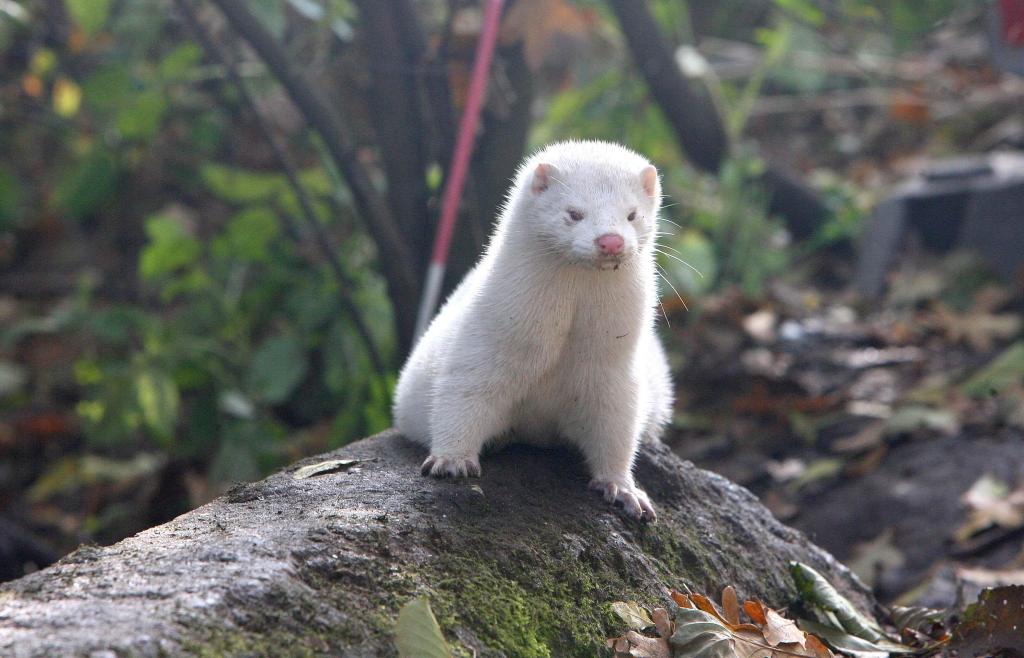More than 200 people have been infected with new mutations of the coronavirus believed to have been transmitted via minks in Denmark.
The country’s Statens Serum Institut, an infectious disease agency, said it had found COVID-19 variants in 214 people since June.
Videos by VICE
This week Denmark introduced its strictest coronavirus restrictions yet in parts of the country, as it ordered the culling of 13 million minks to contain a the outbreak, with a specifically dangerous strain – dubbed “Cluster 5” – infecting 12 people.
Cluster 5 weakens the antibodies central to the effectiveness of any potential vaccine, meaning that vaccines currently under development could be set back, or in the worst case scenario be rendered ineffective.
The mutation is thought to have occurred when the virus was transmitted among minks, which are commercially farmed for their fur in Denmark. At least 216 farms have registered outbreaks among their mink populations.
“It is very, very serious,” said Danish Prime Minister Mette Frederiksen.
Kåre Mølbak, executive vice-president at the Statens Serum Institut under the Ministry of Health, emphasised just how serious the risks associated with the new mutation are.
“The worst-case scenario is that we have a pandemic that starts over with its point of origin in Denmark,” Mølbak said.
To contain the outbreak, the government announced a complete lockdown of seven municipalities in Northern Jutland, the administrative region in the far north of Denmark where most of the original cases were found.
Residents have been advised not to travel into neighbouring municipalities unless absolutely necessary, public transportation has been shut down, and all workplaces have been encouraged to send home their employees unless they serve a critical function. The government has also increased local testing capacities, and urged all residents there to get tested.
Not all experts are as worried as the Danish government. While they agree there is reason to be concerned about where the situation may be heading, many see no reason to panic just yet.
“It’s a very small group of people who have been infected, so the scope of the problem is hard to establish at this time,” said Christian Wejse, epidemiologist at Aarhus University Hospital. “The problem with Cluster 5 is that it may be able to sneak around the vaccine, though it’s a bit early to worry about a vaccine we don’t have yet.”
Wejse continued: “But I think it’s only appropriate to say that this could potentially become problematic if we find an otherwise effective vaccine that doesn’t work on a large segment of people who are infected with this new strain.”
He agreed, however, with the lockdowns introduced by the government. “It is now we must act,” Wejse said. “Not three months from now.”
According to Lars Erik Larsen, professor in veterinary virology at the University of Copenhagen, the mutation can be understood by comparing it to a key and a lock, where the key is located on the surface of the virus, and the receptor in a cell is then the lock. When a virus attempts to enter a receptor, several thousand mutations are created, of which the vast majority have no effect. But some may be of benefit to the original virus, so that the “key” fits slightly better in the “lock,” and so it becomes more and more adapted to a new host.
“The antibodies we induce are meant to attach to this key, so that it cannot make contact with the lock on the cells. The vaccines that are currently under development only create antibodies against the key on the original virus,” he told VICE News. “The problem is that, when infection spread among the mink, the key mutated, meaning that the antibodies used in the vaccines will not be as effective against the new strain.”
Larsen also urged people not to worry too much at this time, because the symptoms and treatments of the mutated virus were not affected by the mutation, meaning that it is not any more dangerous to humans than the original virus.
“If you get COVID tomorrow, it doesn’t matter whether it’s the new or the old type. You get sick the same way, and the process is the same. So you should not be scared of this new strain at the moment,” he said.
More
From VICE
-

(Photo by Francesco Castaldo/Pacific Press/LightRocket via Getty Images) -

M Scott Brauer/Bloomberg via Getty Images -

Firefly Aerospace/YouTube -

Justin Paget / Getty Images
